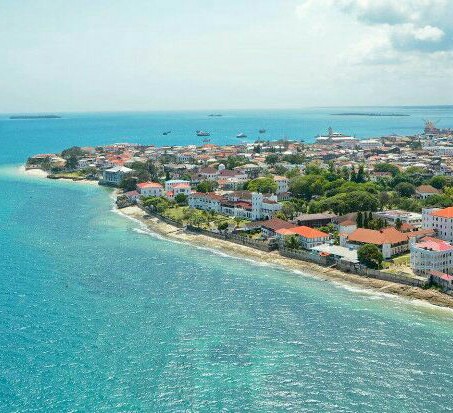Are you wondering what life in Tanzania has in store for you and your family? In this guide on living in Tanzania, we first give a brief introduction to Tanzania and its people, and then discuss important topics such as health and safety, accommodation, and schools. Also in this articles health and Safety in Tanzania housing and Schools in Tanzania as one of the most diverse countries in Africa, you can expect a very different cultural experience when moving to Tanzania. The medical facilities in Tanzania are most definitely not of the same standard as those available in western countries. Make sure you talk to your doctor about necessary vaccinations needed before moving. If you want to enroll your child in an international school, you need to get in there early as spaces are limited. For younger children, it is the cultural “norm” for expat families to employ a nanny or household help.Where Is Tanzania?Tanzania has an area of 947,300 sq km and is located in eastern Africa on the Indian Ocean. It shares its longest borders with Kenya (to the northeast) and Mozambique (to the southeast), but also borders Burundi, the Democratic Republic of the Congo, Malawi, Rwanda, Uganda,and Zambia. To the east, Tanzania is bordered by the Indian Ocean. Three of Africa’s largest lakes also border sections of the country: Lake Victoria in the north, Lake Tanganyika in the west, and Lake Nyasa in the southwest.Tanzania is made up of three geographical regions: the islands and coastal plains in the east,a saucer-shaped plateau in the center and west, and the highlands in the northeast. Mount Kilimanjaro, the highest point in Africa standing at 5,895m, lies in these northeastern highlands. Another special geographical feature is the Great Rift Valley, which cuts through the centerof the country.From Tropical to Temperate: Tanzania’s ClimateTanzania’s climate varies from tropical in the coastal areas to temperate in the highlands. In the coastal plains and plateau regions, temperatures range from 25-31°C during the hottest months (November - February) and 15-20°C in the coldest months (May - August). Temperatures in the highlands range between 10-20°C.Some areas in Tanzania have only one rainy season per year, while others have two. The southern, southwestern, central and western partsof the country have a single rainy season, which lasts from December to April. The northern region of the country, including Dar es Salaam and Arusha, has two annual rainy seasons. Peopleliving in this area of Tanzania distinguish between the short rains (Vuli) from October toDecember and the long rains (Masika) from March to May.Culture and DemographicsThere are about 55.5 million people living in Tanzania. In the five decades since its independence, Tanzania’s population has almost quintupled. The population is particularly concentrated in Dar es Salaam and Zanzibar City and their metro areas. Despite these urban centers, just under 70% of the people living in Tanzania still reside in rural areas.Tanzania is one of the most diverse countries in Africa. On the mainland, around 99% of the population is ethnically African, coming from over120 different tribes, almost all of them Bantu. On Zanzibar, the people are of Arab, African, or mixed Arab and African descent. On the mainland, the population is almost evenly split between Islam, Christianity (mostly Roman Catholicism), and indigenous religions. Over 99%of the population of Zanzibar is Muslim.Life in Tanzania is characterized by a mix of African, Arab, European and Indian cultural influences. Kiswahili (Swahili) and English are both official languages. Kiswahili is the lingua franca of central and eastern Africa and the country’s unifying language. Most people living in Tanzania speak one of the 158 local languages as their first language. Arabic is widely spoken on Zanzibar. English is the primary language of business, government administration, and higher education.Health Precautions: Know Your JabsBefore you begin your life in Tanzania, you will want to make sure you take the proper medical precautions. The risk of catching a serious infectious disease is quite high. These diseases include hepatitis A, typhoid fever, yellow fever, malaria, dengue fever, and rabies. The HIV/AIDS rate in the country is also quite high at 4.7% of the population.In addition to checking that all your routine vaccinations are up to date, you should also be vaccinated against Hepatitis A and typhoid fever.Other vaccines to consider are Hepatitis B, yellow fever, and rabies (if you will be in contact with animals). Talk with your doctor about the best anti-malarial medicine option for you and whether you need to start taking it before your departure.Once you start living in Tanzania, be sure not todrink the tap water, as it is full of bacteria and parasites. Many expats get water filtration systems installed in their homes to minimize the risk of contracting waterborne diseases. Malaria-carrying mosquitoes are another big problem. In addition to taking anti-malarial medicine, gettingyour home regularly sprayed against mosquitoes, sleeping under mosquito netting, and using insect repellant are other precautionary measures you can take. Remember that May through July is considered high malaria season in Tanzania.We do our best to keep this article up to date. However, we cannot guarantee that the information provided is always current or complete.
BEAUTIFUL PLACES IN TANZANIA.
Mount Kilimanjaro, Ngorongoro Conservation Area, SerengetiNational Park, Tarangire National Park, Ruaha National Park,Selous Game Reserve, Lake Manyara National Park, Pemba Island, Olduvai Gorge, Mount Meru, Lake Victoria, Ol DoinyoLengai, Lake Natron, Lake Tanganyika, Bongoyo Island, Olduvai Gorge Museum, Mbudya Island, House of Wonders, Hamamni Persian Baths, Old Fort of Zanzibar, National Museum of Tanzania, Old Dispensary, Serengeti, Changuu, Mnemba Island, Forodhani Gardens, Kibo, Sultan's Palace, Zanzibar, St. Joseph's Cathedral, Dar es Salaam, Christ Church, Zanzibar, Uhuru Peak, Ruvubu National Park, UluguruMountains, Azania Front Lutheran Church, Saanane Island National Park, Bahari Zoo, Meserani Snake Park, Askari Monument, Nungwi Beach, Coco Beach, Port of Dar es Salaam, Uhuru Monument, Kunduchi Water Park, Le Grande Casino, Water World, Dar es Salaam Zoo, Peace Memorial Museum, People's Palace








No comments:
Post a Comment